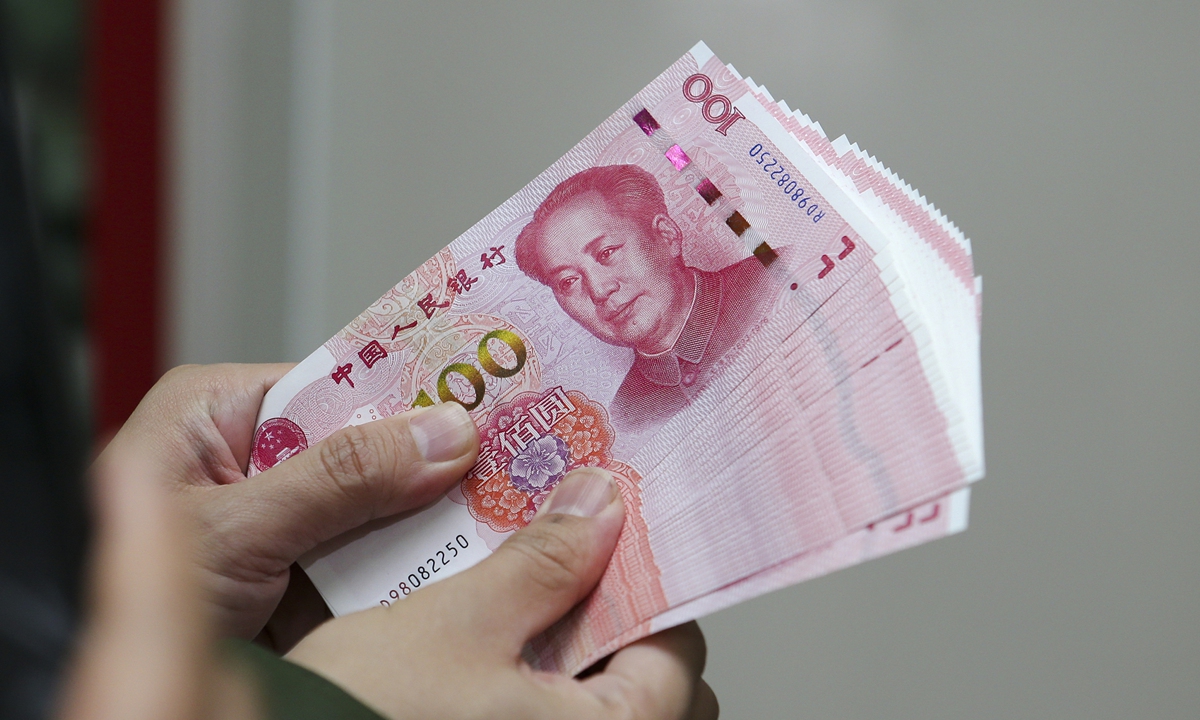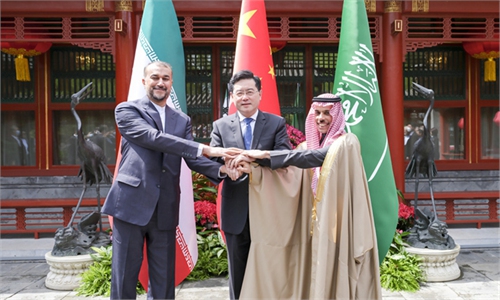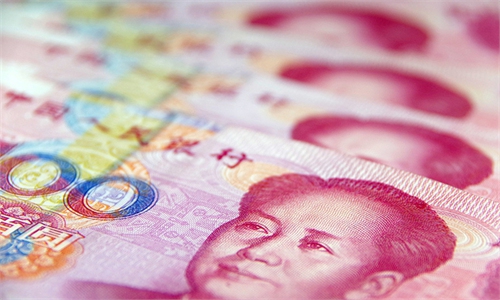China, Brazil deepen cooperation on yuan settlement as the alternative to US dollar aids cross-border trade, investment
Move to help firms to find a more reliable alternative in post-COVID era

RMB Photo:VCG
China's largest commercial bank, Industrial and Commercial Bank of China (ICBC), has processed the first cross-border yuan settlement in Brazil at its local branch there, the Xinhua News Agency reported on Wednesday, marking another significant step in the yuan's globalization.
The transaction, the first of its kind since China's central bank authorized ICBC as a yuan clearing bank in Brazil in February, was immediately welcomed by Chinese companies and experts.
They told the Global Times on Wednesday that the move paves the way for smoother and deeper trade and investment ties between China and the largest country in Latin America, as the two countries embrace closer ties amid the incoming visit by Brazilian President Luiz Inácio Lula da Silva to China.
Yuan settlements are expected to boost the regional economic and trade recovery in the post-COVID era and help companies to find a more reliable alternative to the US dollar as they seek safer cross-border trade and investment deals, Chinese experts said.
Guo Haiping, honorary president of the General Chamber of Chinese Entrepreneurs in Brazil, told the Global Times on Wednesday that yuan settlement procedure will facilitate bilateral trade and investment and reduce the risks of the volatile US dollar.
"The yuan helps reduce the market risk as well as cut trading costs," Guo said.
As cross-border yuan settlements are taking place, the chamber is planning to promote them among its member companies to facilitate business growth, the Global Times learned.
Henan D.R. Construction Group, a Chinese infrastructure builder, told the Global Times on Wednesday that while it doesn't have projects in Brazil at the moment, the company has great interest in going there.
Of all the positives of bilateral relations, the use of the yuan for settlements with Brazil will accelerate trade and investment, the company said.
Chinese consumer electronics producer TCL said that, with the yuan settlement, any investment in Brazil does not need to be converted into a third currency, which means it's cheaper and involves lower exchange rate risks.
In February, China and Brazil signed a memorandum of understanding to phase in the yuan clearing arrangement, said China's Foreign Ministry on March 20.
China's central bank has authorized ICBC Brazil to act as the yuan clearing bank in Brazil to enable companies to directly use the yuan for trade settlements.
On March 29, Banco Bocom BBM SA, a Brazilian bank, became South America's first participant in the Cross-Border Interbank Payment System, China's homegrown global clearing and settlement system for yuan-denominated payments, according to media reports.
On the sidelines of President Lula's visit to China from Wednesday to Saturday, more progress is expected regarding local currency settlement, in addition to other cooperations, experts said.
Tang Jie, researcher of Latin American Affairs with the Institute of American & Oceanian studies at the Chinese Academy of International Trade and Economic Cooperation, told the Global Times on Wednesday that cross-border yuan settlement cooperation will be highlighted during Lula's visit, which could include other moves for building a more reliable payment mechanism.
Brazil is likely to join China's Belt and Road Initiative, which requires huge capital flows, and local currency settlement can better respond to actual needs, Tang noted.
China Guangfa Bank (CGB) told the Global Times on Wednesday that its yuan settlement service in Brazil is expected to be launched soon.
Trade-related deals between clients of CGB and their Brazilian partners have increased. In 2022, the overall corresponding transaction volume rose by 13 percent.
CGB is already qualified to conduct cross-border yuan business with Brazil and it has received inquiries from many Chinese international trading companies, the bank said.
While the US dollar still dominates Brazil's foreign exchange reserves, the yuan's role, as a rising international reserve currency, has been highlighted lately.
According to a recent report by the Central Bank of Brazil on its official website, as of the end of 2022, the proportion of the yuan in Brazil's international exchange reserves had reached 5.37 percent, exceeding the proportion of the euro at 4.74 percent, becoming the country's second-largest reserve currency.
The increase of the yuan's share in Brazil's international exchange reserves reflects the deepening economic ties between Brazil and its largest trading partner - China.
Zhang Jieyu, assistant research fellow at the Department for Latin American and Caribbean Studies, China Institute of International Studies, told the Global Times that the yuan settlement with Brazil sends a clear message of the growing acceptance and influence of the Chinese currency globally which will serve as an example for more countries to follow.



